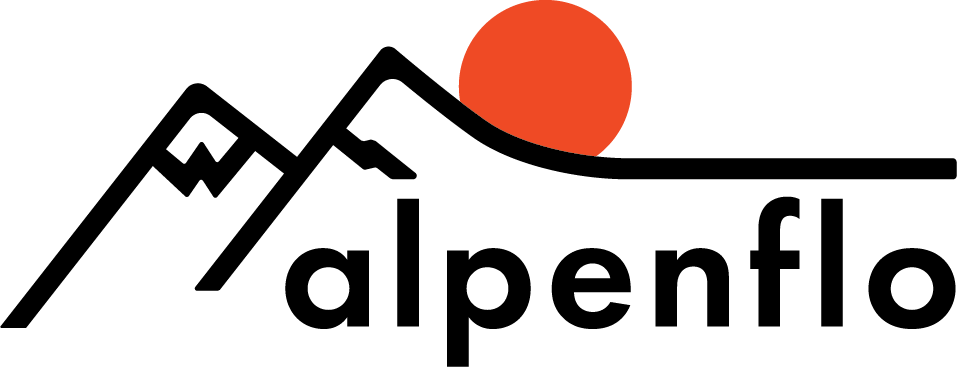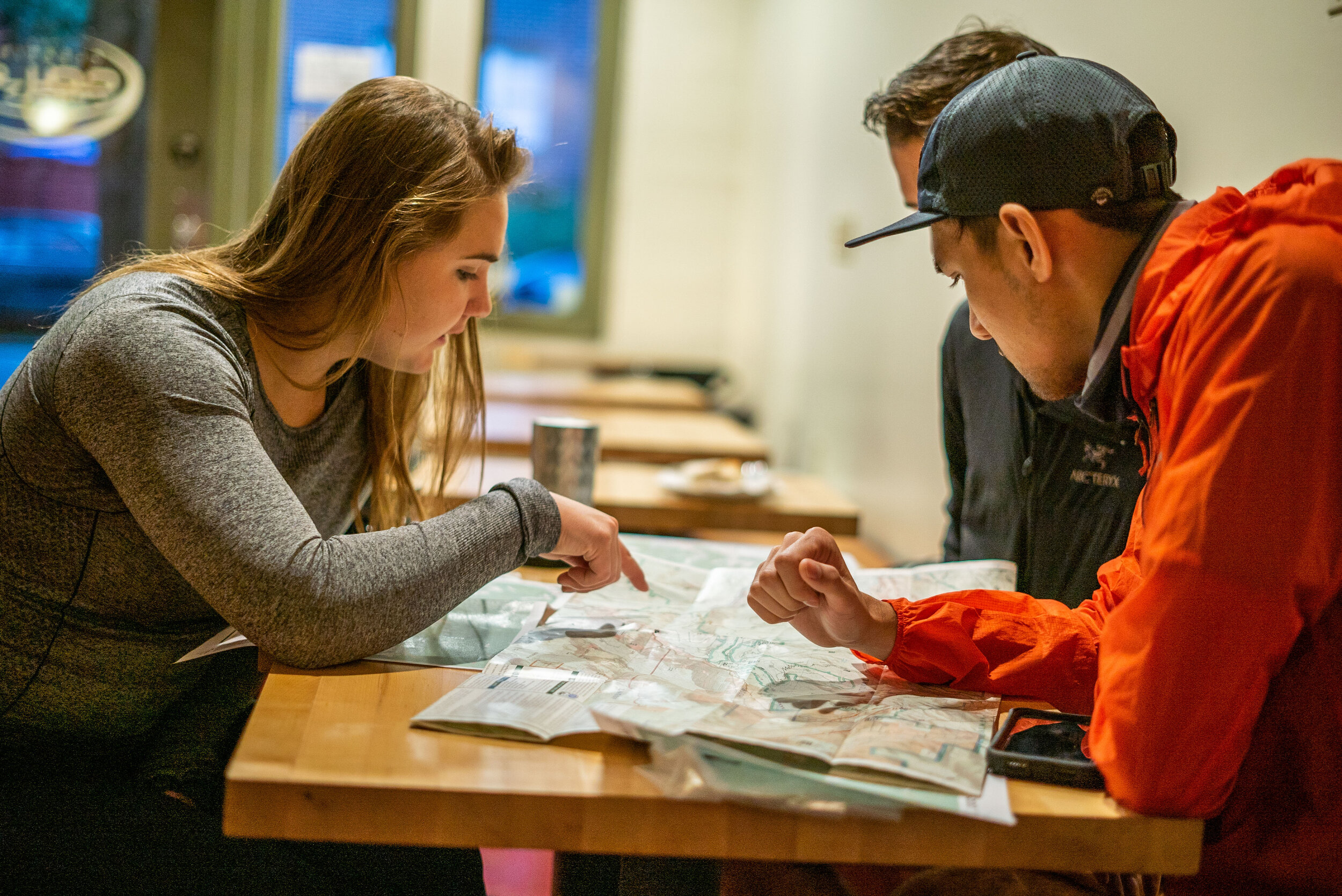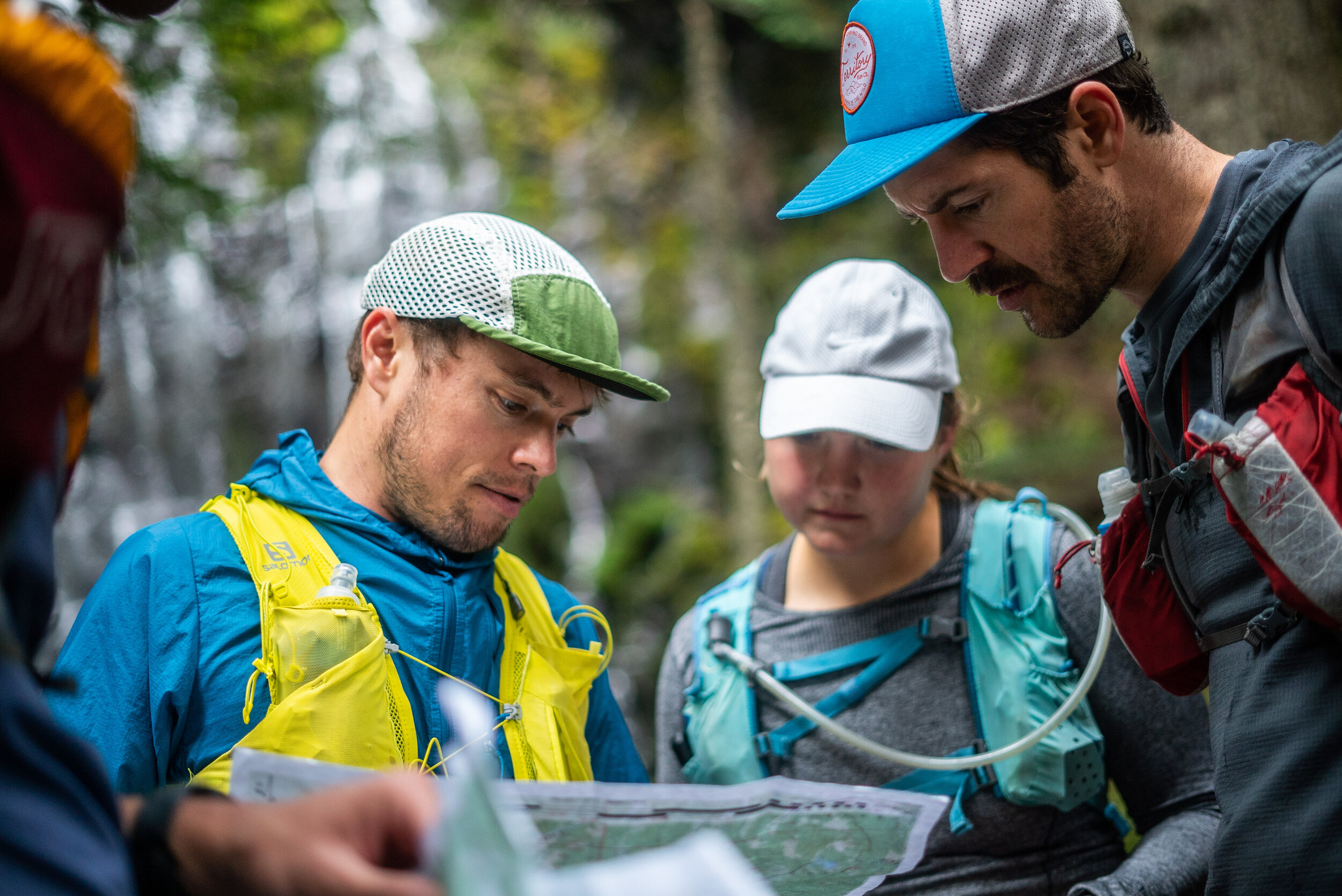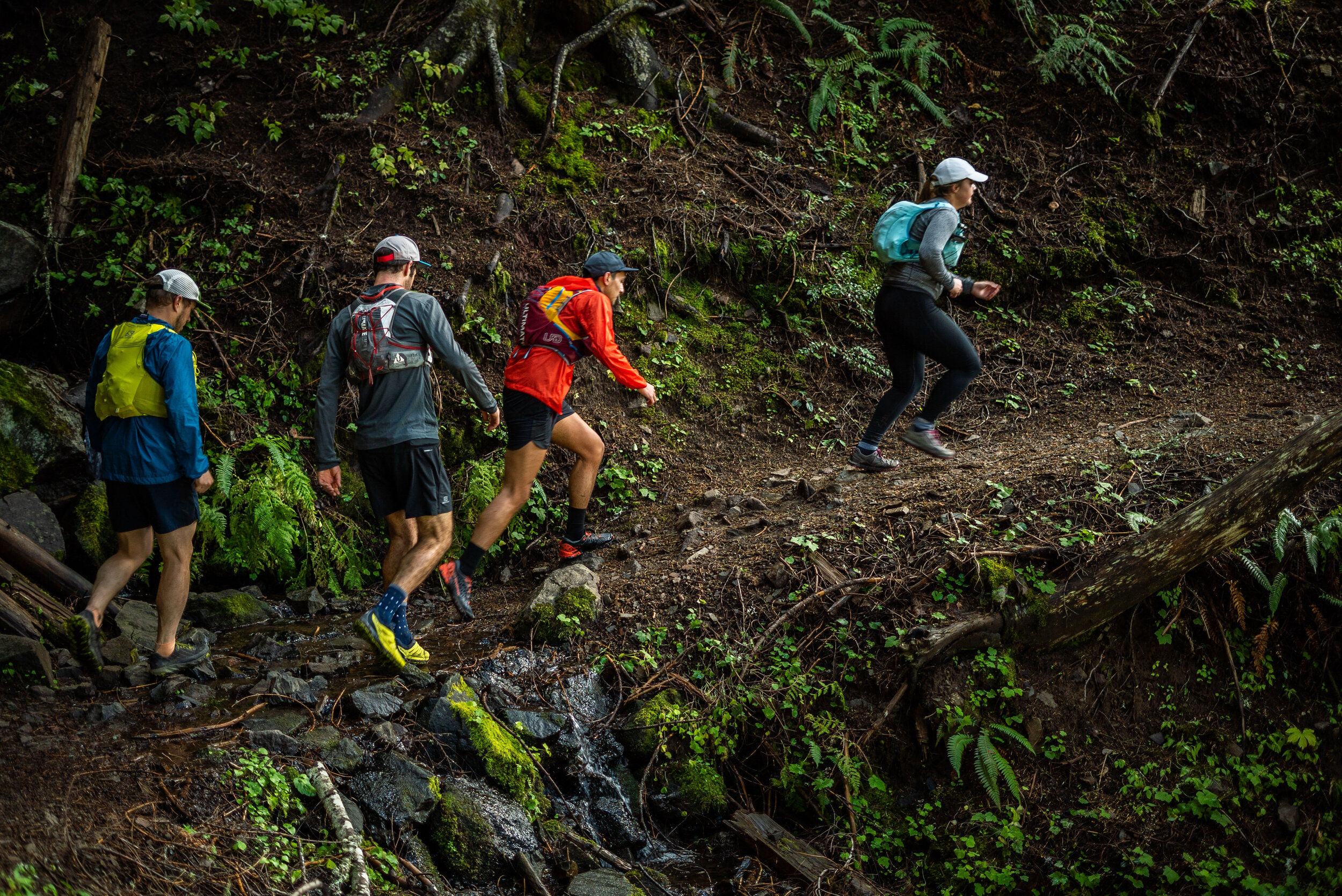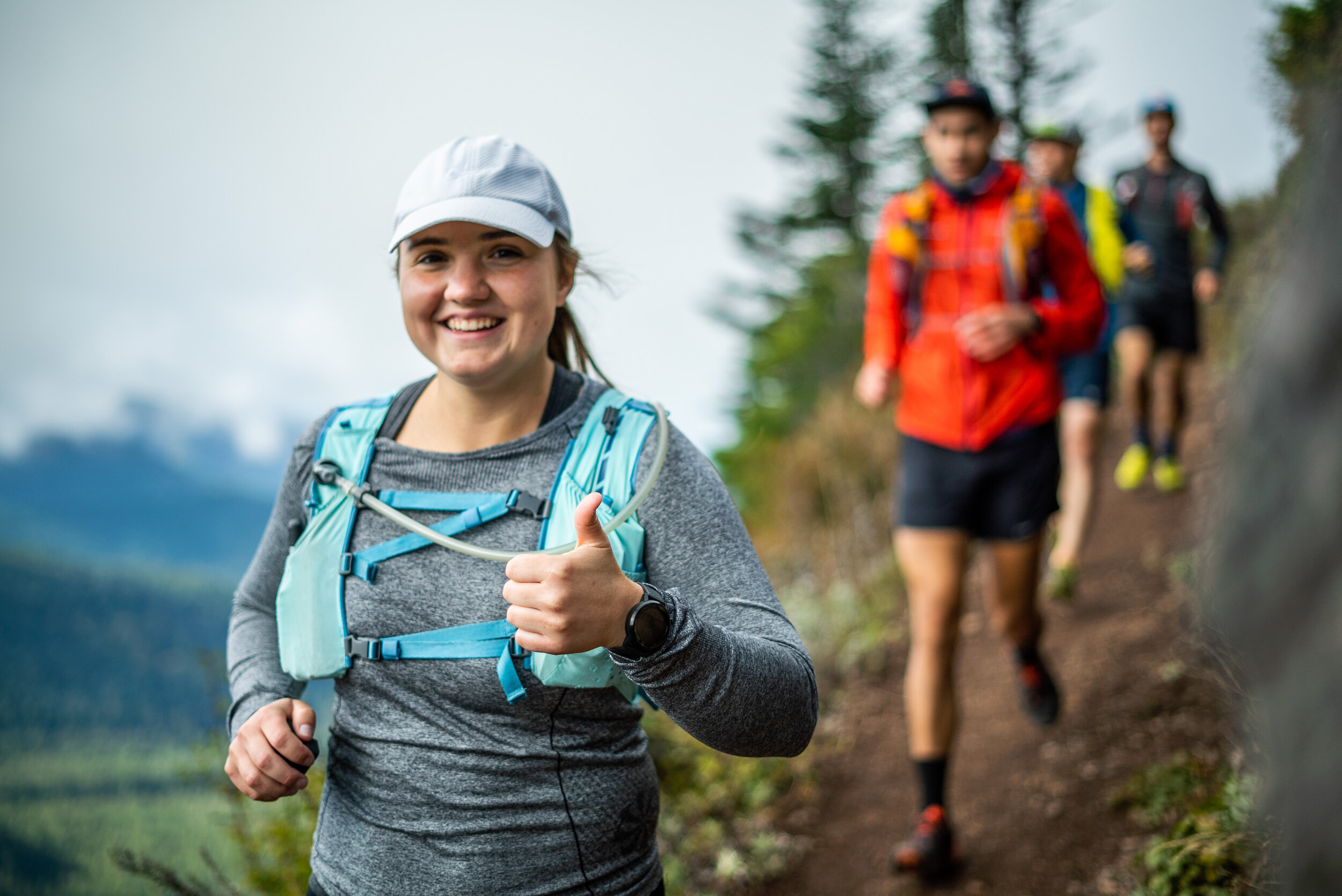Athlete Next Door - Colby Triolo
“We’re all alive, but are we all really living?”
Colby Triolo is a Spartan Ultra competitor, world traveler, and computer engineer living in Portland, Oregon.
After a long journey back from post-concussion syndrome, she started her blog You Make You to share her story of recovery and inspire others to build their own lives. It has over 30,000 followers.
Shortly after completing an Alpenflo Trail Running Clinic, Colby went on to summit Mt. Saint Helens Solo, in a day.
We spoke on Colby’s 1 year anniversary of arriving in Portland. She’s put a lot of effort into forming connections here, and today she’s happy to call the city home. We talked about her You Make You project, the mindset that enabled her journey back from post-concussion syndrome, and the community she’s built through endurance sports.
“The idea of letting your feet take you to these places that you’ve never seen before is really exciting to me.”
Photos Colby Triolo
“I would set goals for myself every week and there were two goals that I always had:
1) Meet two new people
2) Do something new that made me uncomfortable”
“Once you get your foot in the Trail community, which I didn’t even know existed, from there it was just exponential. It was finding person after person who had the same ideals and outlook on life and with that community there was something every night you can go to and it just blossoms.”
Photo Colby Triolo
JT: Today is your one year anniversary of moving to Portland, what has it been like to meet people and build community?
Colby: I moved out here not knowing a single person, all I had was a job.
For the first few months there were two goals that I always had 1) Meet two new people, and 2) Do something new that made me uncomfortable like going to a group run or hanging out with a new group of people.
The first group run I went to, I realized that all of my worlds were involved. I used to be really uncomfortable going to group runs but seeing familiar faces really just cut down the wall and I started going to a bunch.
Once I got my foot in the Trail community, I found person after person who had the same ideals and outlook on life and it just blossoms.
JT: You’re relatively new to trail and long distance running is that true?
Colby: Yes, also exactly a year. I didn't know trail running was a thing until I moved here. I saw an ad on Facebook one day about Spartan Ultras and thought, “maybe I can run 30 miles if I'm also stopping to do Burpee's and stuff like that”.
JT: Yeah rest breaks.
Colby: Yeah, to do 400 Burpees. I started looking at places around Portland where I could run and I found Forest Park. I started out in the Pittock area then realized that there's 80+ miles of trails here. I started exploring on my own and then did the Wildwood end to end for training. It was a Spartan ultra that made me realize that I just want to run.
JT: You must've increased your mileage really fast to be able to do a Spartan Ultra, how did that feel and how did your body hold up to that?
Colby: Not well. It felt fine through the ultra, but two weeks after that I started picking up mileage again. The Spartan was in October and by Christmas my body was just not letting me do anything. Very seriously over trained, just a few miles would be very tough. I ended up taking a full month off which was really hard to do, and then going back to zero. That taught me that you have to listen to your body, I was following the training schedule not listening to my body.
JT: What attracts you to races?
Colby: I really love seeing places on foot. The idea of letting your feet take you to these places that you've never seen before is really exciting to me. A lot of these races are things I could do on my own, which I'm realizing.
JT: You mentioned that you've had a lot of races get canceled, what kind of goals are you thinking about now?
Colby: I really like taking this as a sign that it's time to build my base but also that it's time to actually learn how to integrate rest and recovery properly. I think what's excited me a little bit more than races are these "adventure runs" as you call them, which I love. I'll sit here on Caltopo at night and just plan routes.
Just using this as a time to build my base and get excited. You hear of all these really cool routes and if you build your base you can do whatever you want.
JT: Your your Instagram handle is “Colby.YouMakeYou" what does it mean?
Colby: About six years ago I used to be a really big ice hockey player and I had two really bad concussions back to back. For a year and a half I pretty much couldn't do anything, this was between high school and college so I deferred college. Every time I would go outside I couldn't process the world it was just me in a room for a long time because my brain wasn't working right and also it was a lot of head and neck pain and chronic migraines. I went through countless doctor appointments and procedures and nothing ever helped. It was just pain day after day, and I thought it was going to be like that forever. I remember one day I was in so much pain, I moved to our beach house so I could be alone because talking to people was really tough, and I remember thinking if no one can help me then I must be the only one who can help myself. So I started getting these books about concussion syndrome and realized you pretty much have to rewire how your brain works and heal yourself. It was a lot of telling myself over and over that "this is temporary, you can change your way your brain works.” It was a lot of positive self talk, going out for runs and saying "your head doesn't hurt" even when it hurts.
March 30, 2015 I had my first migraine free day. Slowly but surely everything else started to feel better, I went back home to my parents and I remember sitting in my car with my dad and saying "I know there's other people out there who have this problem, I wish I could help one of them.” Sitting in the car and the windshield wipers were going and I remember saying "what about you make you?", because I made me. And from that moment on “You Make You" was a blog, and it used to be a very big blog on Instagram and the website I think I had 40,000 followers or something it used to be a big part of my life.
JT: I can’t believe I didn’t know that about you! That’s really cool that you made something positive out of this awful experience that you have.
Colby: I think the biggest thing that's come from it is that there's a difference between being alive and truly living. That's one of the biggest things I think about every day. I've been at the bottom. I know what it feels like to think that life is over forever, so the fact that we're alive and we have a chance to actually go live our lives is what I strive to do.
So that's where the “You Make You” comes from. It kills me to hear that other people have those struggles. I’ve talked to other people with post-concussive problems and it’s a whole world out there. A big reason why I started You Make You was because I wanted to be there for other people. To tell just one person that "I get it" and luckily I was able to do that with many, many people, but it is very isolating if you don't have people who get it.
JT: Yeah I love that. With the space that the pandemic has opened up, what other kinds of things have you been exploring that you haven't had time to do previously?
I’ve been doing the crossword every day, meditation, and just the space of letting myself think. I feel like from the moment I started work a year ago until before this all started, my brain hasn't really roamed free, which is where creativity comes from. I’ve felt so much creativity over the last few weeks because I actually have time to think.
JT: Is there a specific thing you think about when you meditate? Do you use an app? Or how do you do it?
Colby: I spent years trying to figure this out and the only thing that's worked for me is a practice called Ziva meditation where are you meditate by not clearing your brain. You use the fact that your brain is always thinking to meditate. That's what works for me. You start with what you're grateful for, then to all five senses, then you spend 5 to 10 minutes you have a word and when you lose focus on the word when you lose focus you just come back to the word. You forgive yourself for straying and you come back to the word.
JT: What are some of the qualities you look for an adventure partner's
Colby: What I love about people is that they can be really real and really vulnerable and talk about more than just the surface level things. I love stories, so being able to open up and share stories and get real pretty fast is something I've always valued in adventure partners. Obviously the willingness to go off the beaten path and go far get a little dirty.
JT: Do you have a philosophy about gear?
Colby: Recently I've switched to fast & light which is something that allows me to go further, which is something that you've taught me. I’m not really brand specific. I like local things if possible, kind a like everything else.
JT: Do you have a favorite piece of gear?
Colby: My Go Pro
JT: Is there a new belief behavior or habit that's improved your life in the last few years?
Colby: The biggest one is what I've mentioned before which is we're all alive, but are we all really living? Are we living each day in the moment as if it might be our last? That and making time every day to find at least one thing that I’m grateful for. Something that I like doing at the end of every day is just playing the day back and really appreciating every moment, just the little things. I've always been a little things person.
Colby’s Recommendations
Stress less accomplish More - Emily Fletcher (Ziva meditation)
Mountaineering: Freedom of the Hills - The Mountaineers Books
Clean Code - Robert C. Martin
Devil in the White City - Erik Larson
Podcasts
Meathead Hippy
Anything NPR
Learn More about Colby and her projects
Instagram @colby.youmakeyou
